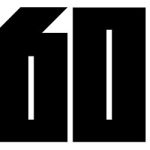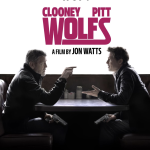The story of American photographer Lee Miller, a fashion model who became an acclaimed war correspondent for Vogue magazine during World War II.
Chuck says:
A fine performance from Kate Winslet goes to waste in Ellen Kuras’ “Lee,” a meandering biopic that falls victim to every pitfall of the genre. The script, by Liz Hannah, Marion Hume and John Collee is a reflection of three writers, each contributing a distinctly different voice and intent. The result is a fragmented story that hits the highlights of its subject’s life though remains vague in terms of fleshing out the relationships with those closest to her. The result is a frustrating exercise, one that provides a Cliff Notes glimpse of what was a fascinating life.
Restless and longing for adventure, former fashion model Lee Miller (Winslet) is in search of a sense of purpose. Tired of the bohemian lifestyle she lives with her fellow artists, she realizes her days in front of the camera have passed. Even sharing a flat in Paris with her lover, painter Roland Penrose (Alexander Skarsgard), has lost a some of its appeal.
What with Hitler on the march, and England seemingly the next nation to fall in his path, Miller approaches Audrey Withers (Andrea Riseborough), the editor of “Vogue” with a radical idea. A photographer herself, she requests that she be sent to the frontlines of the fighting to document the war experience. A good idea on paper, it doesn’t work out that way at first. As a woman is not allowed in war zones, so Miller is sent instead to snap pictures of what women on the Homefront are doing. Documenting how the common woman pulls together a meal while rationing takes place or what they do during air raids gets old quickly.
With the help of David E. Scherman (Andy Samberg), a photographer from “Life,” Miller ultimately makes it to the frontlines, her photos pulling no punches showing the severe injuries of the wounded or the plight of refugees. Her pictures of the atrocities found at the death camps at war’s end, were some of the first taken.
The photos, when we see them, which is far too rare, are striking. As such, it’s easy to see why so many of them were published and still more suppressed. The problem is, we see far too little of her work and get only vague suggestions of how her work affects her personal life. Tripping from one key event to another, with the help of on-screen text to provide context (“Paris-1944-The Liberation”), the movie’s fragmented ends up shooting it in the foot. The gaps in the story are too much and as a result, they keep the viewer at arm’s distance, our engagement in the story never complete. An awkward framing sequence involving Miller being interviewed also contributes to the movie’s lack of pacing.
That being said, every cent of the film’s budget is on the screen, the period production values spot on. The sense of place throughout is convincing and it sucks us in at every turn. Winslet, as always, is fully committed to her role, so good that she’s able to deliver many awkward lines of dialogue with enough conviction to make them nearly palpable. Samberg is fine, though he seems selective as to which scenes he employs his New York accent in. Skarsgard, Riseborough and the rest simply aren’t given enough scenes to make an impression.
Despite Winslet’s willingness to put the film on her shoulders, like so many biopics, “Lee” ends up as a missed opportunity. Had a mini-series approach been taken, a more complete portrait would have resulted. As it is, Miller’s story remains untold.
2 Stars




